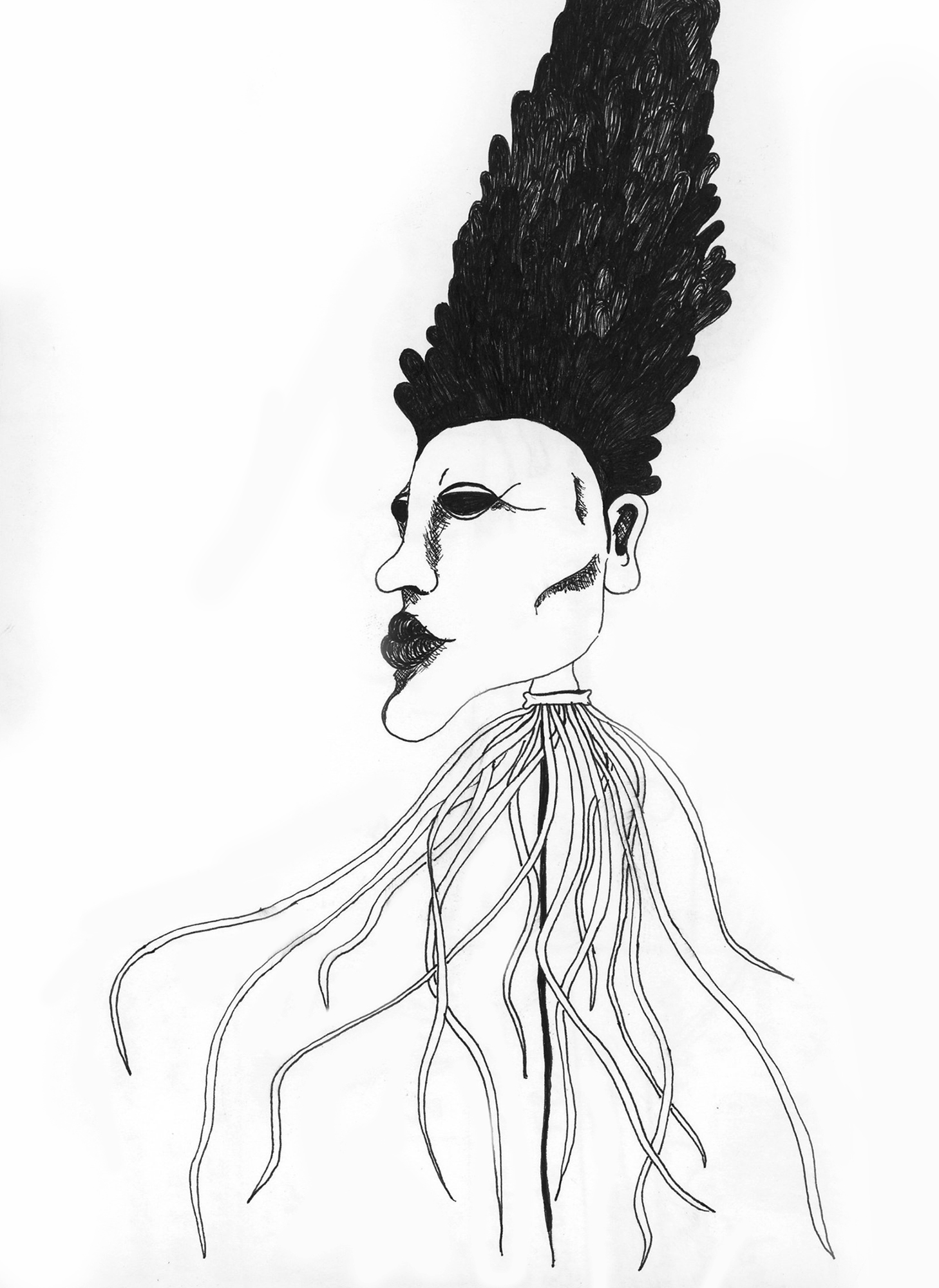Maturity vs. Creativity
by Erin Christie
Art by Brunei Deneumostier
“Some people never change, they just stay the same way,” Ryan Ross, lead singer of the indie rock band, The Young Yeins, croons on their 2008 debut single, “Change.” Though the song itself is beautifully done, is that statement true?
Change is inevitable, and that can be a terrifying thought. Consistency, in most cases of life, equates to comfort. Fearing change in any capacity isn’t the most irrational thing in the world. Our internal predispositions teach us to resist change, to find solace in having constant control and in being “in the know.”
When we put mulled over what we wanted to write about for this piece, Brunei and I were coming up with squat. An absolute goose egg. That was until she took to looking at some of her old journals, reminding her of the content that she used to be interested in and the ideas that had flitted about in her head. Looking at these old notebooks, she began to wonder when and why she had stopped this cathartic practice. Why had all of the imaginary worlds represented through doodles fled for the hills alongside her colossal day-dreaming journal entries that read like poetry? And how had this subtle, yet massively significant, change happened without her noticing?
As unfortunate as it is, living in the world guarantees a promise of encountering fear-provoking imagery, ideas, and situations in everyday life. It’s an experience that makes our often lax, carefree, and wonder-filled childhoods seem worlds away.
Regardless of the outcome, our parents typically have our best interest in mind: they want us to succeed and to thrive, to avoid the problems that they faced growing up and the mistakes they made.. Despite good intentions in most cases, though, their once “helping hand” can become one that tears us down instead of building us up.
“Parents picture kids as clay they mold for life when they’re actually more like flexible plastic that responds to pressure,” says economist and professor at George Mason University, Bryan Caplan. With the intention of “preparing us” for how harsh the “real world” might be, the idea that financial security and possible subsequent unhappiness are more important than being less well-off but genuinely enjoying our work, is ingrained into our collective headspace as children. What if you had ignored those warnings and chosen to seek out that wacky idea to be a firefighting ballerina? To write for the Herald while being a full-time art teacher for the blind at the same time? To dare to be happy and to do something interesting? Instead of being taught to reach for the stars, no matter how potentially ridiculous our plans are, we are forced into maturity with a kick to the behind by the steel-toed boots of our elders, who, “when they were our age,” were taught not to consider their dreams.
Matethesiophobia: meta meaning “change” and phobos meaning “fear” in Greek. Clinical psychologist, Dr. Samantha Rodman, noted that though fearing change is certainly common (as it’s literally wired into our DNA), that fear becomes detrimental when it “keeps people paralyzed in situations that are not healthy or fulfilling,” such as staying in an unhealthy relationship or on a career path that one isn’t happy with. With unhealthy or harmful situations, we don’t always have control over whether or not we can leave or move on, and this leads to even more external as well as internal struggling. “Anxious parents often pass down the worldview that life is filled with danger and risks, and the best course of action is to stick with that is safe and known,” Rodman continues. It’s easy to fall into a trap of self-destruction where we abandon potentially rewarding opportunities in order to opt for what we are immediately most comfortable with. How, then, can we progress if we can’t move past these roadblocks? With this in mind, is “maturity” partly a sign that someone has given in to fear and let go of their childlike wonder?
Other times, judgment hinders the creative process. Because of older generations are geared into a mentality where creativity cannot offer as big of a reward as practical career choices. This leads to a cycle where if you decides to focus on anything besides say, accounting, dentistry, marketing- or any other career path that is “safe” and basically guaranteed to offer a payout—you are wasting your time. Feelings of inadequacy are permeated by this mentality: that reaching out into the unknown is dangerous because it is uncertain as to whether or not you’ll find anything in the vast abyss. Rather, wouldn’t it be more effective and beneficial to encourage adventure, bravery, and fearlessness, especially in terms of one’s craft? Pushing to create cut-and-paste versions of older generations will make our world wither and go gray in the long-run, and this can only be reverted by turning back to what we’ve been conditioned to forget: to open up our notebooks and doodle to our heart’s content just for the joy of it, not because you have to or because it might lead to compensation.
Poetry by Brunei Deneumostier







